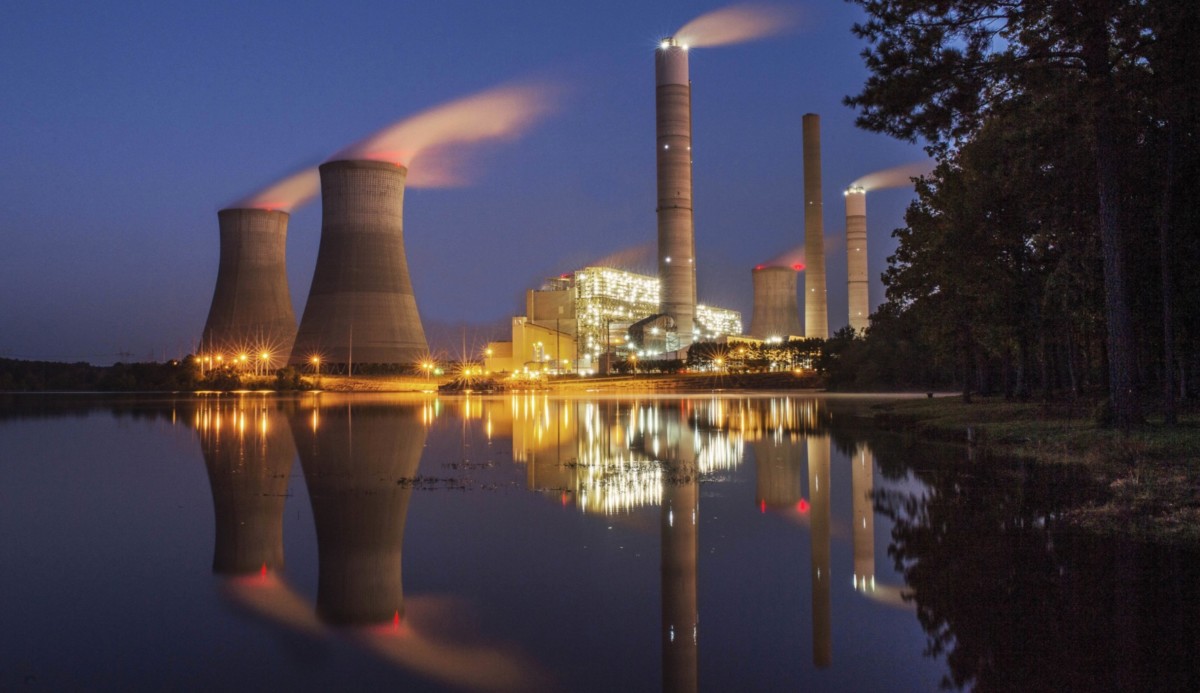Play all audios:
By David Pendered and Kelly Jordan The Georgia Water Coalition’s latest report on the state’s most polluted waters shifts the traditional focus of the Dirty Dozen from the most polluted
places to the “politics, policies and issues” that most threaten Georgia’s water. The Dirty Dozen was released Tuesday, the day before a record crowd gathered for the Georgia Water Coalition
Partners Meeting. A total of about 85 riverkeepers and clean water advocates attended the meeting at the Georgia Wildlife Federation’s Alcovy Conservation Center, near Covington. The 2018
edition of Dirty Dozen still identifies a dozen waters or water-related issues. But it places them into a broader context of how the situation has been created and allowed to continue. “From
state leaders deceiving citizens and shortchanging environmental programs in the state budget to powerful corporations using their influence to change state policy at the expense of
ordinary citizens, this report is as much about dirty politics as it is dirty water,” Jesse Demonbreun-Chapman, executive director and riverkeeper with the Coosa River Basin Initiative in
Rome, said in a statement. For example, the report contends that the state Legislature approved a bill this year at the behest of Georgia Power. The company creates a lot of coal ash at
power plants, and the new law sets the price of dumping that ash below that of household waste, according to the report, which observes: * “[L]ocal governments will charge landfill operators
$2.50 for every ton of household garbage collected, but only $1 per ton for coal ash. With some 8 million tons to dispose of at local landfills, this translates into a potential $12 million
windfall for Georgia Power. What’s worse, the coal-ash loophole means that Georgia will continue to be a dumping ground for out-of-state coal ash.” Each of the 12 “worst offenses against
Georgia’s water” concludes with a call to action. In the case of the landfill situation, the call states: * “State leaders must undo the damage done by [House Bill] 792. They should
introduce legislation repealing the provision in HB 792 that gave Georgia Power and out-of-state waste generators a free pass to dump coal ash waste on Georgians.” The report presents a
chronological narrative to details the political actions it says have contributed to or created water quality problems. The report observes: “Ten days in March illustrated the extent of the
dirt in Georgia’s politics when it comes to protecting our water. * “On March 27, the 19-member Department of Natural Resources Board voted to weaken Georgia’s clean water rules. The rule
change came on the heels of a state court decision that determined that Rayonier Advanced Materials wastewater discharge into the Altamaha River violated state rules. When Georgia’s
Environmental Protection Division (EPD) and Rayonier AM lost in court, the agency simply changed the rules to benefit the Jesup pulp mill. The Board agreed to the change unanimously. An
executive with the Rayonier’s Jesup mill sits on that same board. * “That same week, state budget writers failed to adopt legislation that would end the annual looting of the Hazardous Waste
and Solid Waste Trust Funds, programs designed to clean up hazardous waste sites and illegal tire dumps. Citizens and businesses paid some $21 million into these funds the previous year,
but budget writers provided only $6.8 million for these programs in the 2019 budget, breaking trust with citizens and leaving about 100 hazardous waste sites still waiting cleanups. * “And,
on March 29, in the closing minutes of the General Assembly session, Georgia Power Company, which has thus far made nearly $400,000 in campaign contributions to Georgia politicians during
the 2016 and 2018 election cycles, persuaded legislators to keep landfill tipping fees for toxic coal ash 60 percent less than tipping fees for ordinary household garbage. The move gives the
company a potential $12 million windfall while depriving local governments of important revenue they receive from hosting these regional landfills. The deal also exposes Georgians to more
toxic coal ash shipped from out of state.” The release of the Dirty Dozen follows the release of the Clean 13, issued in September, which recognized 13 companies, organizations or
individuals honored for “extraordinary efforts [that] have led to cleaner water in Georgia,” according to a statement from the water coalition. _RELATED POSTS_

